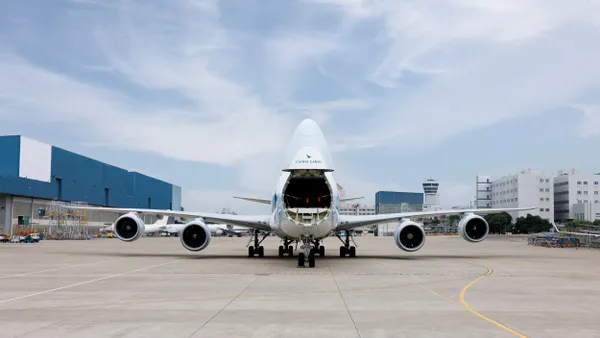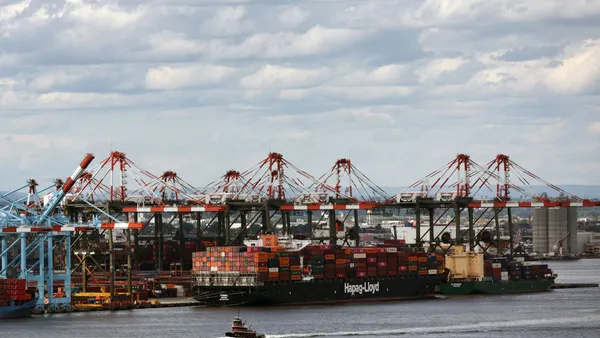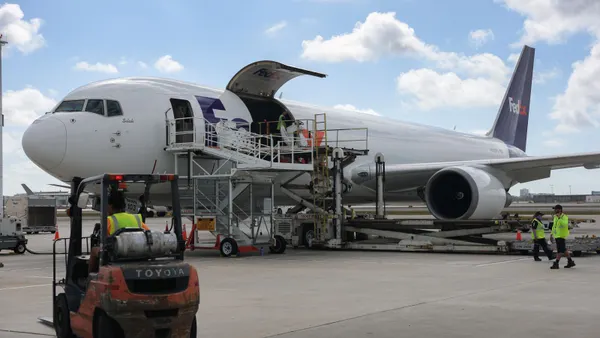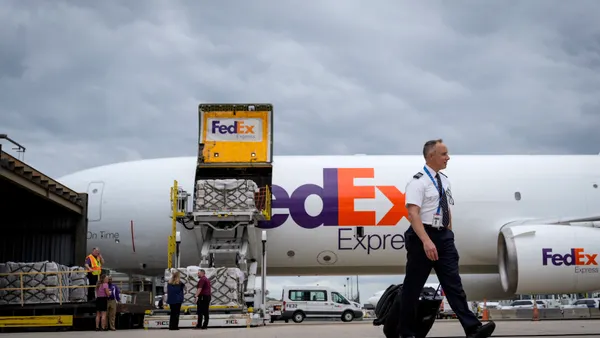Dive Brief:
- Boeing expects air cargo traffic to double in the next 20 years, driven by growing global e-commerce volumes, especially in Asia, according to its 2018 World Air Cargo Forecast.
- Goods transported by air, including perishables, electronics and pharmaceutical products "are some of the
fastest-growing trade flows around the world," Boeing said in its report. - The jet manufacturer projects more than 1,100 standard-body and 500 medium wide-body passenger airplanes will be converted into freighters to handle increasing cargo volumes.
Dive Insight:
Boeing projects the air cargo market will sustain a long term growth rate of 4.2%, with e-commerce as one of the main drivers. Global e-commerce sales are expected to reach $2.8 trillion this year. By 2021, the e-commerce market could reach almost $5 trillion.
China in particular is booming, as the nation has become home to the world's largest e-commerce market, with sales rapidly outpacing e-commerce sales in the U.S., which is the second largest e-commerce market.
In addition, the types of goods often shipped by air are seeing higher growth rates compared to heavy or bulk commodities typically transported by ocean freight, rail or truck.
"The computers and electronics equipment commodity group, a major source of air cargo traffic, was the fastest growing in 2017," the report stated.
Since last year's unusually high growth rate of 10.1%, the pace of air freight growth has slowed, although it's still growing.
Some analysts attribute trade protectionist measures to slowing growth in the industry. Earlier rounds of tariffs between the U.S. and China did not significantly impact goods typically shipped by air, but the latest round, in which $200 billion worth of goods from China face 10% duties, has more widespread impact.
"While there are potential risks in the market, including trade tensions and volatile fuel prices, air cargo market fundamentals remain favorable," Boeing's forecast stated.














